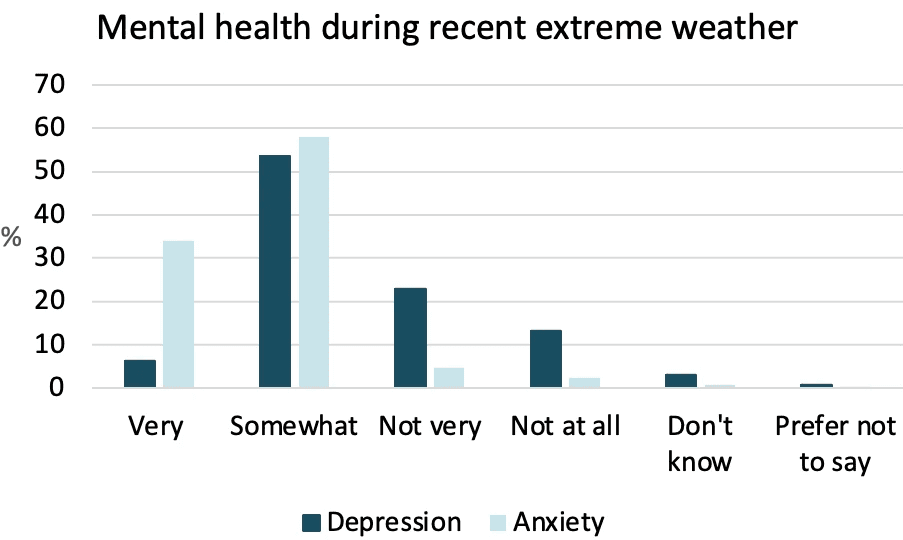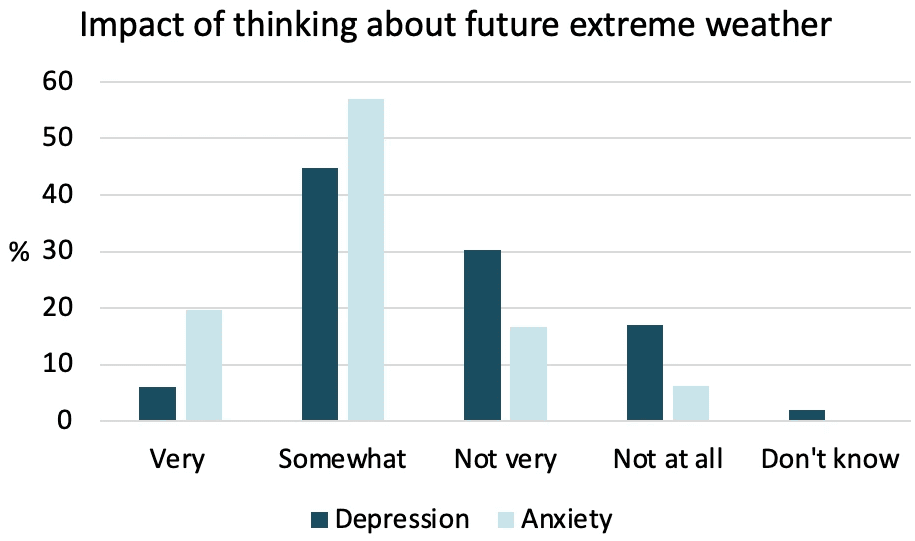
Oct 29, 2025
British Farmers' Experience of Extreme Weather and its Impacts on Mental Health
The mental health of farmers is of growing concern, and needs to be taken into account while developing responsible agricultural policy and industry governance. The Royal Agricultural Benevolent Institution (RABI) farmers’ charity found in 2021 that 36% of the farming community are probably or possibly depressed, with nearly half suffering from mild to severe anxiety. The most reported drivers of mental health issues were related to policy (instability), bad / unpredictable weather, and rural crime. In this blog, we will focus on recent research exploring the impacts of extreme weather on farmer mental health.
The ECIU’s 2025 report, The Impact of Climate Change on British Farms and Farmers’ Mental Health, reveals a growing mental health crisis among UK farmers driven by climate change-induced increases in extreme weather. Surveying 300 farmers, the report highlights how unpredictable weather patterns are causing widespread anxiety and depression, with few seeking help due to a culture of stoicism.
The data is sobering: 92% of farmers reported anxiety during extreme weather events, with 34% feeling very anxious. 60% experienced depression, driven by fears of losing crops or livestock (78%), the costs of recovery (68%), uncertainty about crop selection (52%), and the risk of financial ruin (43%). Despite these challenges, only 24% sought support from peer support groups, professional advice, or environmental groups to help them manage the impacts of the extreme weather events.

Responses to the survey questions ‘During the period of extreme weather, did you feel depressed?‘ and ‘During the period of extreme weather, did you feel anxious?’.
When asked to consider future extreme weather, the farmers expressed a strong sense of apprehension. 77% of farmers are anxious about future extreme weather, with 20% feeling very anxious, and 51% reporting depression. Over half (51%) worry about weather impacts at least weekly, with 19% worrying most days. 80% are concerned about their ability to sustain their farms, and 83% fear for the next generation’s prospects, with 43% highly concerned.

The report brings the numbers alive with a series of case studies. Joanne Coates, a Yorkshire Dales livestock farmer, describes how the increasingly erratic weather disrupts traditional farming and increases the rate of sunburn, lungworm, and diseases like New Forest Eye among her cattle. This not only hurts her business but feels deeply personal, as seeing her animals suffer feels like a personal failure. Colin Chappell, an arable farmer in North Lincolnshire, shares the stress of record-breaking floods and droughts. Last year, he feared financial ruin as spring crop yields collapsed and 200 acres were unplantable. The constant uncertainty takes a heavy toll, adding new anxiety to an already isolated and demanding role.
The report emphasizes the need for immediate mental wellbeing support. Organizations like the RABI and the Farming Community Network are vital, especially given the alarming statistic that one farmer or agricultural worker dies by suicide weekly in the UK. Encouraging farmers to seek help and providing accessible resources could alleviate some of the burden.
At Climate Spheres, we take a keen interest in all facets of sustainability, environmental, financial, and social. Only by engaging and supporting the financial security and mental wellbeing of farmers can we truly achieve sustainable agriculture. As climate change intensifies, addressing the mental health aspect is critical to supporting the farming community and ensuring the security of UK food production.
Source Report